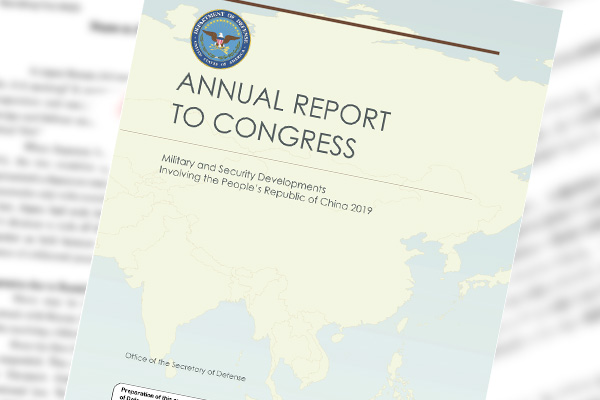The U.S. government is growing concerned that China’s Belt and Road Initiative for expanding its sphere of influence could facilitate its construction of new overseas military bases. It is also pointed out that China could deploy strategic nuclear submarines in the Arctic that is regarded as part of the BRI. We cannot discuss about the Chinese initiative without considering its military implication.
Warning from Pentagon’s China report
On May 2, the U.S. Department of Defense released its annual China military power report concluding that China is modernizing its military forces with the aim of emerging as the preeminent power in the Indo-Pacific region under the official target of being equipped with a “world-class” military by 2049 marking the centennial anniversary of the establishment of the People’s Republic of China.
The report then describes the BRI as a tool to become a great power and predicts that the initiative would probably drive overseas military basing through a perceived need to provide security for BRI projects
China in 2017 opened a naval base in the northeastern African country of Djibouti as its first overseas military base. As a candidate country for China’s additional military overseas basing, the Pentagon report names Pakistan that has maintained friendly relations with China over a long term. It also cites international press reporting as indicating that China sought to expand its military basing and access in the Middle East, Southeast Asia and the western Pacific.
As for the Arctic, China came up with a policy of promoting the development of the “Polar Silk Road” in January 2018, positioning the Arctic as part of the BRI touted as a modern Silk Road initiative. China could deploy submarines to the Arctic Ocean as a deterrent against nuclear attacks, the Pentagon report says, warning that Chinese nuclear-powered submarines mounted with submarine-launched ballistic missiles (SLBMs) with enough range to hit the U. S. could be deployed to the Arctic Ocean.
Japan’s problematic conditions for cooperation
As the BRI has sparked concerns about China’s intentions, Chinese leaders have softened their rhetoric when promoting the BRI without altering its fundamental strategic goals, the Pentagon report says, indicating that the initiative still aims to develop China into a great power.
If so, the Japanese government’s offer to cooperate in BRI projects on four conditions is problematic. The conditions are transparency, openness, economic efficiency and fiscal soundness of recipient countries, failing to cover the military or security concerns contained in the BRI.
According to China’s state-run Xinhua news agency, the ruling Japanese Liberal Democratic Party’s Secretary General Toshihiro Nikai who visited Beijing in late April as Prime Minister Shinzo Abe’s special envoy to attend the second BRI international forum told Chinese President Xi Jinping on April 24 that the BRI was a grand vision with great potential and that Japan positively appreciated China’s important contribution to the world and the region through the initiative. The remark, even though being diplomatic, sounds too indulgent.
Yasushi Tomiyama is a senior research fellow and Planning Committee member at the Japan Institute for National Fundamentals and a former foreign news editor and bureau chief at Washington, D.C., London and Bangkok for the Jiji Press.


